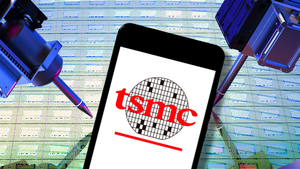- Results from Phase IIb PADOVA and longer term follow-up data suggest clinical benefit on top of symptomatic treatment in early-stage Parkinson’s disease -
- Prasinezumab is a potential first-in-class anti-alpha-synuclein antibody, targeting a known biological driver of Parkinson’s disease progression -
- Parkinson's disease affects over 10 million people globally and significant unmet need remains -
Genentech, a member of the Roche Group (SIX: RO, ROG; OTCQX: RHHBY), announced today its decision to proceed with Phase III development of prasinezumab, an investigational anti-alpha-synuclein antibody, in early-stage Parkinson’s disease. This decision is informed by data from the Phase IIb PADOVA study and ongoing open-label extensions (OLEs) of PADOVA and Phase II PASADENA studies.
"We are encouraged by the efficacy signals observed across the two Phase II trials and their open-label extensions, combined with the favorable safety and tolerability profile of prasinezumab," said Levi Garraway, M.D., Ph.D., chief medical officer and head of Global Product Development. "We also recognize the substantial need for new treatment options, and the totality of data suggest that prasinezumab may have the potential to become the first disease-modifying treatment for people with Parkinson’s disease."
Multiple endpoints from the PADOVA and OLE studies suggest a potential clinical benefit of prasinezumab when added to effective symptomatic treatment in early-stage Parkinson’s disease. Prasinezumab showed potential clinical efficacy in the primary endpoint of time to confirmed motor progression, although missed statistical significance. Positive trends towards reduced motor progression at 104 weeks (two years) were observed; these effects appear to be sustained over longer treatment periods based on additional OLE data. The PADOVA study also provided the first biomarker evidence of prasinezumab impacting the underlying disease biology.
The PASADENA and PADOVA OLE studies, which are evaluating the long-term safety and efficacy of prasinezumab in over 750 people with early-stage Parkinson’s disease, are ongoing.
About prasinezumab
Prasinezumab is an investigational monoclonal antibody designed to bind aggregated alpha-synuclein and thereby reduce neuronal toxicity. By reducing the build-up of alpha-synuclein protein in the brain, prasinezumab can potentially prevent further accumulation and spreading between cells, which may slow progression of the disease.
Data from the Phase IIb PADOVA study suggest the possible clinical benefit of prasinezumab on top of effective symptomatic treatment in early-stage Parkinson’s disease. PADOVA investigated prasinezumab in 586 people with early-stage Parkinson’s disease, treated for a minimum of 18 months while on stable symptomatic treatment. Prasinezumab showed potential clinical efficacy in the primary endpoint of time to confirmed motor progression with a HR=0.84 [0.69-1.01], although the study missed statistical significance (p=0.0657). In a pre-specified analysis, the effect of prasinezumab was more pronounced in the population treated with levodopa (75% of participants), HR=0.79 [0.63-0.99], p=0.0431 (nominal). Consistent positive trends across multiple secondary and exploratory endpoints were also observed. Trends towards reduced motor progression at 104 weeks (two years) were observed, showing 30-40% relative reduction versus placebo across the overall and levodopa-treated populations.
Prasinezumab continues to be well tolerated and no new safety signals were observed in the study. The safety database for prasinezumab consists of data from more than 900 Parkinson’s disease study participants that have been treated with the investigational medicine, of which more than 750 remain in open label treatment with over 500 treated for 1.5-5 years.
Roche/Genentech entered into a Licensing, Development, and Commercialization agreement with Prothena in December 2013 to develop and commercialize monoclonal antibodies targeting aggregated alpha-synuclein, such as prasinezumab, for the treatment of Parkinson’s disease.
About Parkinson’s disease
Parkinson's disease is a chronic, progressive and debilitating neurodegenerative disease characterized by the gradual loss of neurons that make dopamine and other nerve cells, and the development of motor and non-motor symptoms that may appear years before diagnosis. Today, Parkinson’s disease affects over 10 million people worldwide. The prevalence of Parkinson’s disease is increasing, and it has become one of the fastest-growing neurological disorders. Currently, symptomatic treatments that effectively alleviate motor symptoms are available today, having a significant impact on people’s quality of life; however, no available symptomatic therapies slow down or stop the clinical progression of Parkinson’s disease and the effects wear off over time as the disease progresses.
Genentech and Roche are evaluating multiple approaches to slow down disease progression and potentially prevent Parkinson’s disease that involve targeting underlying disease processes such as aggregated α-syn production, lysosomal dysfunction and neuroinflammation.
About Genentech in Neuroscience
Neuroscience is a major focus of research and development at Genentech. Our goal is to pursue groundbreaking science to develop new treatments that help improve the lives of people with chronic and potentially devastating diseases.
Genentech and Roche are investigating more than a dozen medicines for neurological disorders, including multiple sclerosis, spinal muscular atrophy, neuromyelitis optica spectrum disorder, Alzheimer’s disease, Huntington’s disease, Parkinson’s disease and Duchenne muscular dystrophy. Together with our partners, we are committed to pushing the boundaries of scientific understanding to solve some of the most difficult challenges in neuroscience today.
About Genentech
Founded more than 40 years ago, Genentech is a leading biotechnology company that discovers, develops, manufactures and commercializes medicines to treat patients with serious and life-threatening medical conditions. The company, a member of the Roche Group, has headquarters in South San Francisco, California. For additional information about the company, please visit http://www.gene.com.
View source version on businesswire.com: https://www.businesswire.com/news/home/20250615017119/en/
Contacts
Media Contact:
Meghan Hindman (650) 467-6800
Advocacy Contact:
Jenee Williams (650) 303-2958
Investor Contacts:
Loren Kalm (650) 225-3217
Bruno Eschli +41 61 687 5284






